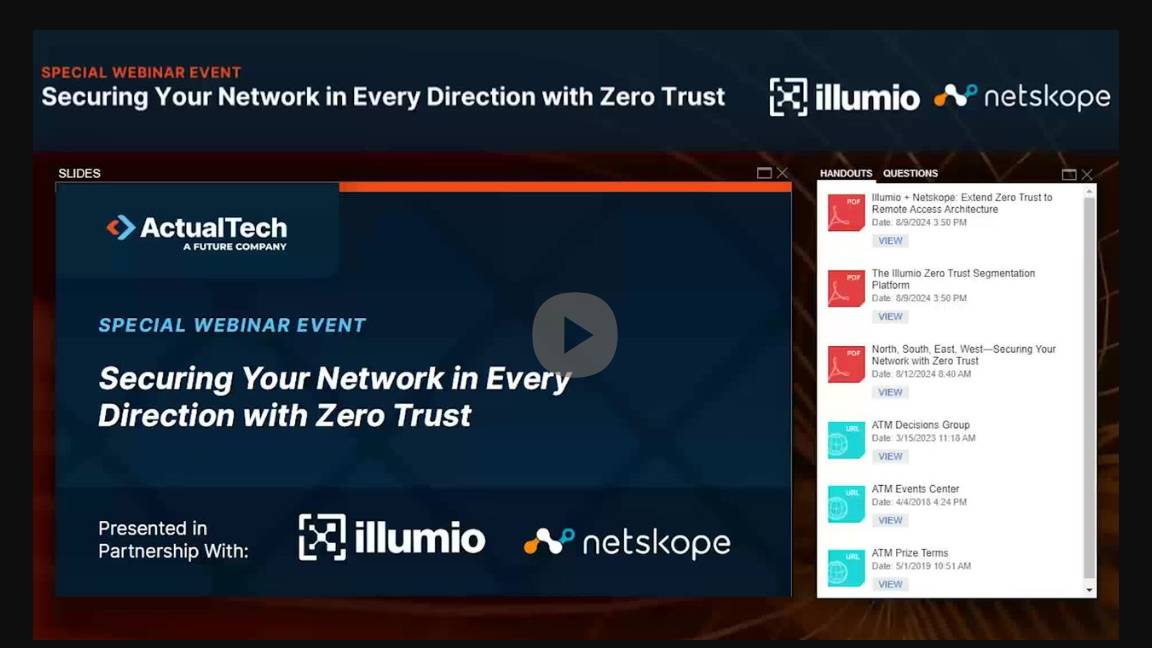50% of cyber attacks now use island hopping
Financial, retail and manufacturing businesses are in the firing line of this increasingly popular cyber attack method


Island hoppingis an increasingly popular cyber attack technique where cyber criminals infiltrate smaller companies, such as HR, marketing or healthcare firms, in order to access a larger target organisation.
It's a method that has seen a steep rise in usage over the past few years, with 50% of today's attacks using island hopping, according to Carbon Black's Quarterly Incident Threat Report.
The report revealed that the industries most affected by island hopping are financial (42%), manufacturing (32%) and retail (32%), although those numbers may well be higher as it is sometimes difficult to work out the journey of an attempted cyber attack.
"At this point, [island hopping] has become part and parcel of a cybercrime conspiracy," said Tom Kellerman, Carbon Black's chief cybersecurity officer. "They're using their victim's brand against customers and partners of that company.
"They're not just, say, invading your house - they're setting up shop there, so they can invade your neighbours' houses too."
At present, there are three main forms that island hopping takes, although new forms may manifest themselves in the future:
Network-based island hopping is the most well-known variant, where an attacker leverages a victim's network to hop' onto an affiliate network. Recent hacks of managed service providers (MSPs) are an example of this, where cyber criminals have been exploiting weak account credentials to access systems installed by MSPs to launch ransomware attacks.
Get the ITPro daily newsletter
Sign up today and you will receive a free copy of our Future Focus 2025 report - the leading guidance on AI, cybersecurity and other IT challenges as per 700+ senior executives
Websites converted into watering holes' are a growing island hopping method seen by 17% of respondents. Hackers insert malware into a smaller target website often used by a large organisation, which then infects individuals coming to use that site. Attackers are then able to use that information to get access to the target organisation.
Reverse business email compromise (BEC) is a new trend, which has been seen in the financial sector. Hackers take over the email server of the victim company, and uses email to send malware attacks to a target company from the trusted recipient.
Organisations are vulnerable to island hopping because it only takes one weak link in the chain of companies they depend on to open up systems to an attack.
There are challenges when it comes to responding to an attack as well; 44% of those surveyed said that a lack of visibility prevented them from being able to respond effectively.
In the meantime, ensuring the security policies and procedures of both your own organisation and any partners you work with are up-to-date is a good place to start with ensuring you don't fall victim to island hopping.
Similarly, ensuring you have a solid backup and disaster recovery plan in place will help your business recover quickly, should the worst happen.
Island hopping webinar
If you want to find out more about island hopping, including how security teams can guard against its use in attacks, watch IT Pro's counter-incident response webinarnow. Presented in association with Carbon Black, the webinar also covers how hackers have begun using counter-incident response tactics to maintain their hold on target networks once they're discovered by security teams.
Adam Shepherd, our moderator, speaks to industry experts, including some of Carbon Black's top strategists, to find out what this means for your security model, and how you can learn from attackers' patterns to make your business safer.
Esther is a freelance media analyst, podcaster, and one-third of Media Voices. She has previously worked as a content marketing lead for Dennis Publishing and the Media Briefing. She writes frequently on topics such as subscriptions and tech developments for industry sites such as Digital Content Next and What’s New in Publishing. She is co-founder of the Publisher Podcast Awards and Publisher Podcast Summit; the first conference and awards dedicated to celebrating and elevating publisher podcasts.
-
 The UK government wants quantum technology out of the lab and in the hands of enterprises
The UK government wants quantum technology out of the lab and in the hands of enterprisesNews The UK government has unveiled plans to invest £121 million in quantum computing projects in an effort to drive real-world applications and adoption rates.
By Emma Woollacott Published
-
 Netgear WBE710 review
Netgear WBE710 reviewReviews The compact WBE710 delivers great cloud management features and a good turn of Wi-Fi 7 speed – but it does have a premium price tag
By Dave Mitchell Published
-
 Billions of IoT devices will need to be secured in the next four years – zero trust could be the key to success
Billions of IoT devices will need to be secured in the next four years – zero trust could be the key to successNews Researchers have warned more than 28 billion IoT devices will need to be secured by 2028 as attacks on connected devices surge.
By Emma Woollacott Published
-
 Cisco claims new smart switches provide next-level perimeter defense
Cisco claims new smart switches provide next-level perimeter defenseNews Cisco’s ‘security everywhere’ mantra has just taken on new meaning with the launch of a series of smart network switches.
By Solomon Klappholz Published
-
 Five Eyes cyber agencies issue guidance on edge device vulnerabilities
Five Eyes cyber agencies issue guidance on edge device vulnerabilitiesNews Cybersecurity agencies including the NCSC and CISA have issued fresh guidance on edge device security.
By Emma Woollacott Published
-
 T-Mobile security chief insists its defenses stood up to attacks linked to Salt Typhoon
T-Mobile security chief insists its defenses stood up to attacks linked to Salt TyphoonNews No T-Mobile customers or services were affected after its security teams detected suspicious activity on their routers
By Solomon Klappholz Published
-
 Securing your network in every direction with zero trust
Securing your network in every direction with zero trustWhitepaper Webinar on the evolution of network security
By ITPro Published
-
 Turning your log and incident data into real-time security insights
Turning your log and incident data into real-time security insightsWhitepaper Integrate multiple data sources for a comprehensive security view
By ITPro Published
-
 Do more with less: Optimizing servers with HPE to maximize VMware licensing
Do more with less: Optimizing servers with HPE to maximize VMware licensingWhitepaper Your trusted guide through the changes in the virtualization market
By ITPro Published
-
 Modern enterprise cybersecurity
Modern enterprise cybersecuritywhitepaper Cultivating resilience with reduced detection and response times
By ITPro Published